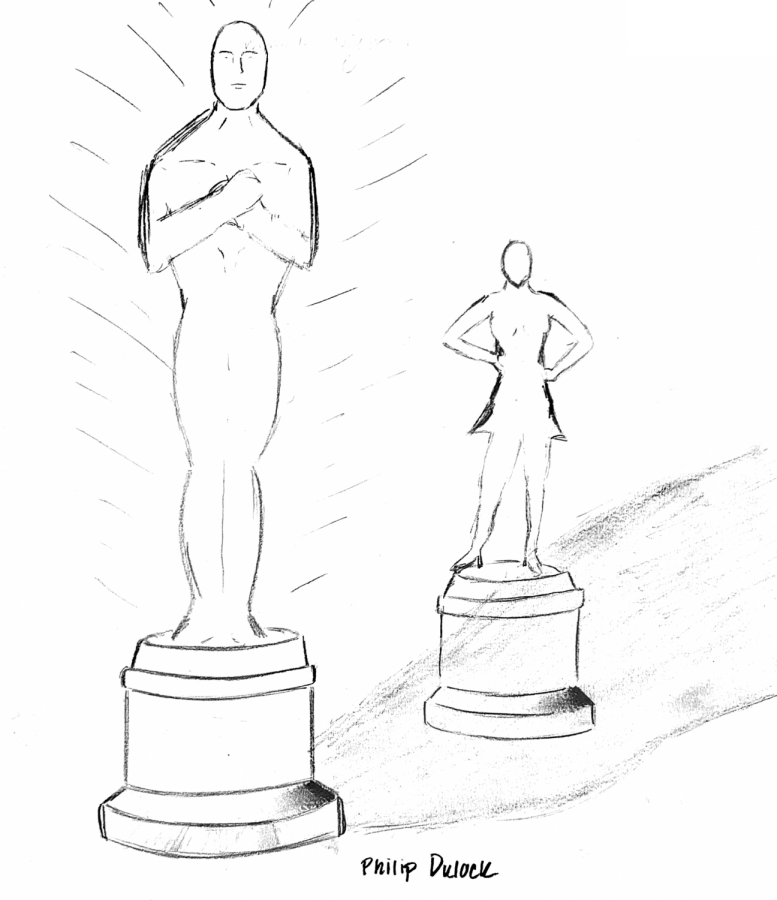Point/Counterpoint: Gender and the Oscars
Gender Does Not Play a Role in Recognizing Achievement in Hollywood
February 14, 2020
The 92nd annual Oscar awards took place on February 9. They recognize the best in film-making of the past year. The nominees are chosen by the Academy of Motion Picture Arts and Sciences, which is made up of around 7,000 cinema professionals. In this sensitive time of gender inequality, the Academy has come under scrutiny for their nominations, this year particularly in the area of film directing. All five of this year’s nominees were men, in spite of some superlative work by female directors. This sparked controversy over whether the Oscars have become a sexist institution. In a time where females in all professions aim to be recognized for the quality of their work and not merely their gender, we must acknowledge that perhaps women directors were omitted, not on the basis of their sex, but due to the popularity, quality, and impact of their movies.
The five directors nominated were Quentin Tarantino, Todd Phillips, Bong Joon-Ho, Martin Scorsese, and Sam Mendes. These men directed Once Upon a Time in Hollywood, Joker, Parasite, The Irishman, and 1917 respectively. Their movies received an average percentage of 85 audience score and an average of 88 percent critic score on Rotten Tomatoes. All of these movies were nominated for many awards at the Golden Globe Awards. Bong Joon-Ho’s Parasite (the eventual winner for Best Director) was the highest-rated movie of 2019 with a Metascore of 96, and received the coveted Palme d’Or at the Cannes Film Festival, the highest recognition a film can receive.
The bottom line is this: everyone cannot be nominated for an award. If they were, it would be somewhat akin to the “participation trophies” often handed out when one just wants others to feel better about themselves. Judging which work is worthy of a nomination is subjective. The Motion Picture Academy of Arts and Sciences honors films to encourage the film-going public to go to movie theatres. To award honors to those who are less than worthy would defeat the purpose. It makes no sense to omit a nomination for a truly excellent film or filmmaker. Isn’t it just possible that with so many worthy films, that when it came down to limiting itself to the top five directors it just so happened that the nominees were all men? Should one of the men have been omitted just to make a statement on gender equality? Again, that makes no sense.
It is imperative for people to understand that the nomination process should be based on quality of work, not merely on the gender of the nominee. If this is truly the case, the best man … or woman … will win.




